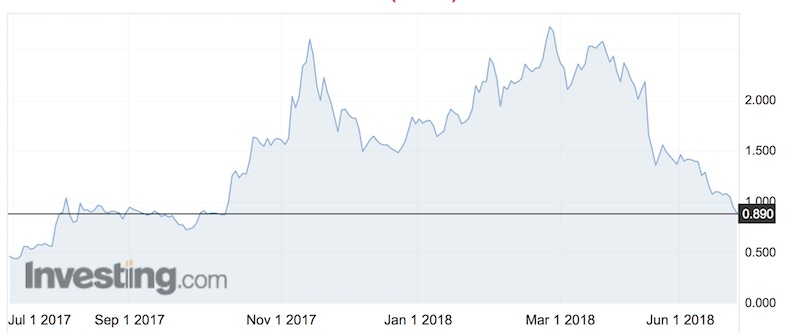Wattle Health signs $34m China infant formula deal; shares jump 22pc

Infant formula play Wattle Health made strong gains this morning after signing a $34 million deal to deliver milk to Chinese state-owned enterprise Shandong Weihai Port International.
Wattle (ASX:WHA), which produces nutritional milk formulas for babies and toddlers, will deliver around $6.6 million worth of its cow milk formula to Shandong over the next 12 months.
The supply deal is for at least three years, with $16.5 million worth of orders scheduled for 2022.
Investors applauded the deal, pushing the shares up 22 per cent to an intraday high of $1.09.
That’s well down on their 12-month high of $2.65 in February though.
Meanwhile fellow China infant formula exporter Jatenergy fell heavily this morning after telling investors that one of its suppliers had been placed into receivership.
Wattle’s new partner Shandong has online sales channels into the likes of Alibaba Group and JD.com and had an operating revenue of around $762 million in 2016.
It’s also home to a “cross border e-commerce industry park”, including showrooms and a commercial shopping area.
The deal is subject to China’s State Administration for Market Regulation approving the infant formula for sale.
Wattle Health is just one infant formula stock still looking to make a mark in China, but with a market cap of $106 million it’s at the smaller end of the scale compared with the likes of Bubs (ASX:BUB) at $257 million and Bellamy’s (ASX:BAL) at $1.8 billion.

In April, Wattle signed a deal with China’s International Supplies and Distribution Company to sell its products into mainland China.
Earlier this year it also announced a $78 million joint venture Organic Dairy Farmers of Australia (ODFA) and Niche Dairy to design, construct and operate an organic spray drying facility in Australia.
- Subscribe to our daily newsletter
- Bookmark this link for small cap news
- Join our small cap Facebook group
- Follow us on Facebook or Twitter
Wattle Health’s share price is up 93 per cent over the past year — but has fallen 34 per cent since April, when news of the joint venture was first outlined.
The stock was trading at $1.065 at 10.45am AEST.
In the March quarter, the company made $258,000 from customers and burned $1.9 million. It had $7.1 million cash on hand at the end of March.
UNLOCK INSIGHTS
Discover the untold stories of emerging ASX stocks.
Daily news and expert analysis, it's free to subscribe.
By proceeding, you confirm you understand that we handle personal information in accordance with our Privacy Policy.








